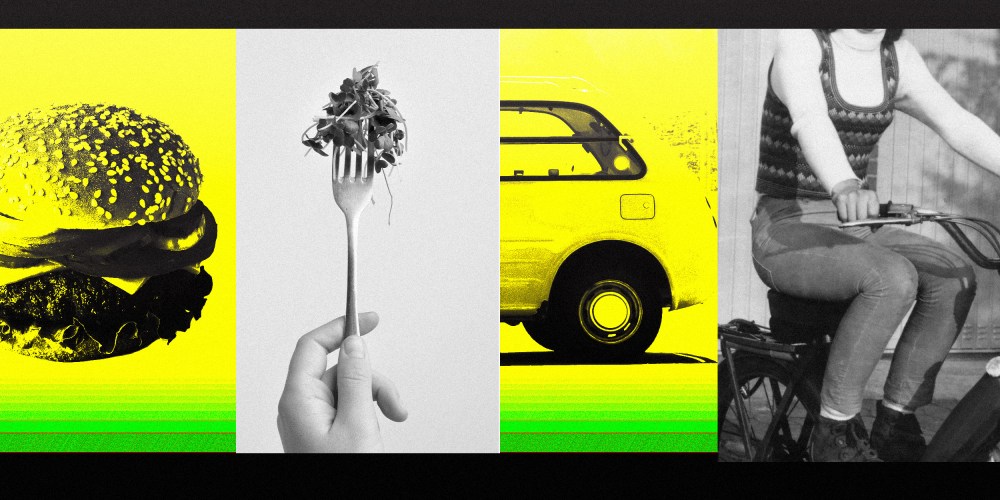“Uh-oh,” you’re thinking, another op-ed from a climate scientist, probably telling you that to solve climate change, you need to give up your car, give up meat and move to a yurt. No, actually! I have some good news: Surprisingly small changes can make a big difference in your climate footprint — and have a positive effect on your own well-being too.
It’s true that big climate actions are important. Unless society invests in transmission lines, moves from fossil fuels to renewable energy, makes buildings more energy-efficient, improves public transportation and carries out many other structural changes, we will blow past the targets of the Paris Accords. But individual and household actions are also important: In fact, they can contribute roughly 25%–30% of the emissions reductions needed to avoid the worst effects of climate change. And they don’t have to be draconian.
These are all relatively simple substitutions that don’t involve drastic lifestyle changes.
A study published in October in the journal Nature Food shows that simple substitutions (chicken instead of beef in tacos, for example) can greatly decrease the carbon footprint of a typical U.S. diet while improving dietary quality. Other substitutions, such as cod instead of shrimp, or plant-based instead of dairy milk, can also reduce emissions while enhancing diets. The authors of the study found that lower-carbon foods typically have better “Healthy Eating Index” scores, making them good for you as well as good for the planet.
It’s not just on our plates where a simple change can reduce our footprints. Changing your travel routine to avoid one car trip per day can save half a metric ton of CO2 per year. At the same time, alternative transportation like biking or walking can lead to improved fitness and decrease air pollution from automobile exhaust. Hanging laundry to dry can save you money while decreasing your carbon footprint.

These are all relatively simple substitutions that don’t involve drastic lifestyle changes. You can buy different ingredients for a casserole without becoming a vegetarian. You can try to decrease food waste without changing your diet. You can carpool one day a week without giving up your car.
Small changes add up in many ways. There is the decrease in greenhouse gas emissions itself, which can be surprisingly large, particularly as a result of changes to diet. But there is an influencer effect as well: When you serve tacos with pollo asado instead of beef, you are helping to normalize that. Every time you use a bike lane or public transportation, you effectively vote to support that infrastructure.











